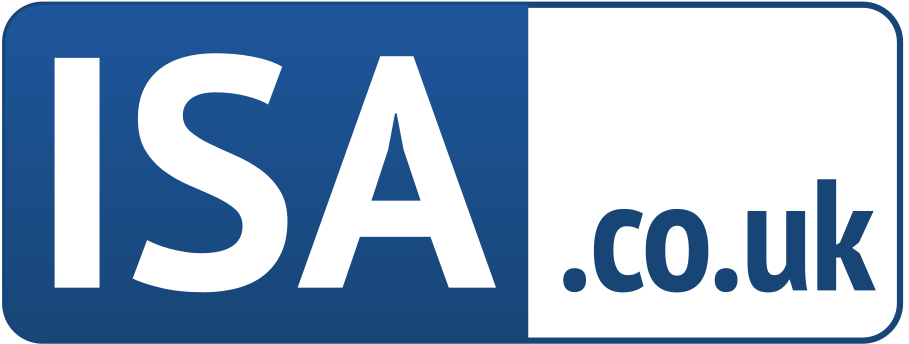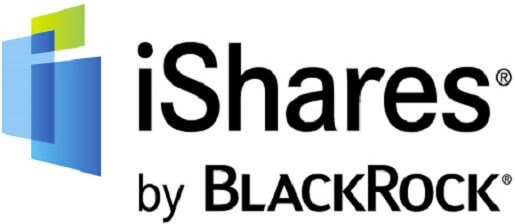Compare FTSE 100 Index Tracker ISAs
Find the best FTSE 100 index tracker ISA to make the most of your tax free allowance this year.
Investment ISAs put your capital at risk & you may get back less than you originally invested.
- Fund Choice: Tracks FTSE 100 Index. Largest company shares in the index include, Astrazeneca, Glaxosmithkline, HSBC & Diageo. Capital at risk.
- Invest From: £25 pm
A super low cost FTSE 100 tracker ETF fund with a 0.07% pa annual charge. The product has a record of tracking its benchmark to a high degree of accuracy and scored ahead of rivals on this measure.
- Fund Choice: Tracks FTSE 100 Index. Companies in the index include AstraZeneca, NatWest, Standard Chartered & Diageo. Capital at risk.
- Invest From: £25 pm
Low cost tracker with a 0.09% pa annual charge. Provides exposure to the FTSE 100 index of the largest companies listed on the London Stock Exchange at a highly competitive price.
- Fund Choice: Tracks FTSE 100 Index. Capital at risk.
- Invest From: £25 pm
A low cost FTSE 100 tracker with a 0.07% pa annual charge. Tracks the 100 largest listed companies in the UK. A low cost way to invest in this area of the market.
What is a FTSE 100 Index Tracker ISA?
A FTSE 100 Index Tracker ISA is a Stocks and Shares ISA that invests in a FTSE 100 tracker fund or ETF (Exchange Traded Fund).
A FTSE 100 index tracker is an investment vehicle that attempts to mirror the performance of the FTSE 100, usually by investing in the exact underlying holdings of the index.
What is the FTSE 100?
The FTSE 100, or Financial Times Stock Exchange 100, is the 100 largest companies listed on the London Stock Exchange based on market capitalisation.
Market capitalisation refers to the total value of the company’s shares, i.e., the total number of shares multiplied by their price.
What are the benefits of a FTSE 100 Index Tracker ISA?
Save Money with Tax-free Savings
By investing in an ISA, your index tracker investments are completely free of the following taxes:
- Income Tax
- Dividends Tax
- Capital Gains Tax
Your FTSE 100 index tracker fund will likely invest directly in FTSE 100 companies on your behalf. Therefore, the dividends these companies pay out will be in your name, and usually you need to declare these on your tax return.
Depending on your personal income tax band, you could pay up to 38.1% tax on these dividends. But if you hold them in an ISA, these will be completely tax-free, and you won’t need to declare them on your tax return.
Spread Risk by Diversifying Your Portfolio
When you invest in a FTSE 100 index tracker ISA, your money will be instantly spread across the underlying shares in the index.
This means that your investment is diversified and you will be less vulnerable to large swings in the value of individual companies compared to if you invested in them directly.
Say, for example, you invested all of your funds in Lloyds Banking Group Plc – one of the biggest companies listed on the FTSE 100.
Despite their size, history and reputation, even international banks are still vulnerable to heavy market swings. This has been shown by the Covid-19 pandemic in particular.
Lloyds shares went from 56.55p per share on 20th February 2020, to 32.10p per share on the 20th March 2020. This represents a loss of 43.23% in just one month.
However, The FTSE 100 itself went from 7,436.64 points to 5,259.29 in the same date range, representing only a 29.27% loss.
At the time of writing, both prices have now recovered from the initial volatility of the pandemic, but it is an example of how the diversification of an investment can make it more resilient to short-term market wobbles.
Pay Lower Charges
Another benefit of tracker funds is that they have lower charges than managed funds.
Managed funds are monitored by a professional fund manager will aim to outperform the benchmark of a particular index or sector.
However, the additional management and expertise involved means that they apply an ongoing management charge (OCF or TER) to your investment.
These can range from 0.5 to 1% per annum but can be higher for some funds.
With an index tracker fund, the only administration required is realigning the portfolio to match the index. While this does involve administration, trading, and regular monitoring, the charges remain very low.
Most index tracker funds will charge between 0.1 and 0.2%.
What are the different types of FTSE 100 Index Tracker ISAs?
There are three types of index tracker funds you can invest in: ETFs, Unit Trusts and OEICs.
OEICs and Unit Trusts
OEICs (Open Ended Investment Companies) and Unit Trusts are only traded once per day compared to shares that trade live on a stock exchange. This means that you will not actually know the price you are buying at until the trade goes through, as you will purchase the units at the next available price point.
ETFs
ETFs (Exchange Traded Funds) track more than just stock indexes. However, some are designed specifically to track indexes such as the FTSE 100. They are traded live on the London Stock Exchange, and so their price fluctuates constantly when the market is open.
You may find that you have higher dealing fees for buying an ETF, but lower ongoing charges from your ISA provider, or even vice versa. It is important to think about what type you want to invest in and its relation to your ISA provider’s charges.
How do I invest in a FTSE 100 Index Tracker ISA?
- Open a Stocks and Shares ISA account that can hold index tracker funds (you can apply online)
- Contribute a lump sum (up to £20,000) with a debit card, or set up a regular direct debit contribution
- Buy a FTSE 100 Index Tracker fund in your ISA, along with any other investments you want to hold
What is the best FTSE 100 Index Tracker ISA?
FTSE 100 index tracker ISAs will aim to replicate the FTSE 100 as closely as possible, so there won’t be a huge variation in the performance of each one.
Some key factors to think about when comparing them are:
- What are the ongoing charges?
- What are the ISA provider’s chargers for holding them?
- How much will it cost to buy and sell the funds?
- How easy is the ISA account to use?
- How good are the customer service ratings for the ISA provider?
What are some alternatives to FTSE 100 Tracker Fund ISAs?
- Managed funds – these are controlled by a professional fund manager and will aim to outperform the sector they invest in, but will apply higher ongoing charges to investors
- Other index tracker funds – as well as the FTSE 100, you can track other indexes such as the FTSE 250, the FTSE All-Share, and international indexes such as the S&P 500
- Shares – investing directly in companies could be more lucrative but is also likely to be more volatile than a tracker fund
Frequently Asked Questions
Can I withdraw my money from a FTSE 100 Tracker Fund ISA?
You can withdraw from a FTSE 100 Tracker Fund ISA at any time.
How much can I contribute to an FTSE 100 Tracker Fund ISA?
You can contribute up to £20,000, in the current tax year, to a FTSE 100 Tracker ISA.
Can my investments go down in a FTSE 100 Tracker ISA?
Yes. If the FTSE 100 goes down, then your investment value will also go down.
Can I transfer my Cash ISA into a FTSE 100 Tracker ISA?
Yes. You can do this by completing a form with your new FTSE 100 Tracker ISA provider.
Will I be charged for opening a FTSE 100 Tracker Fund ISA?
You usually aren’t charged for opening your account but may be charged dealing fees for buying your tracker fund and ongoing fees for holding it.



